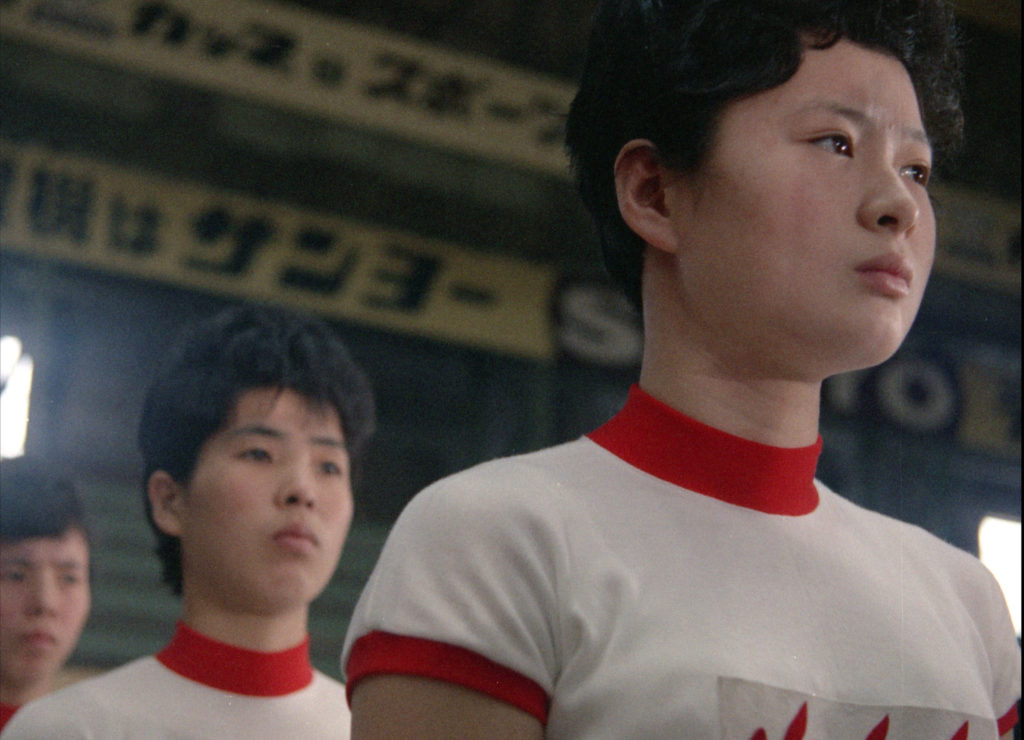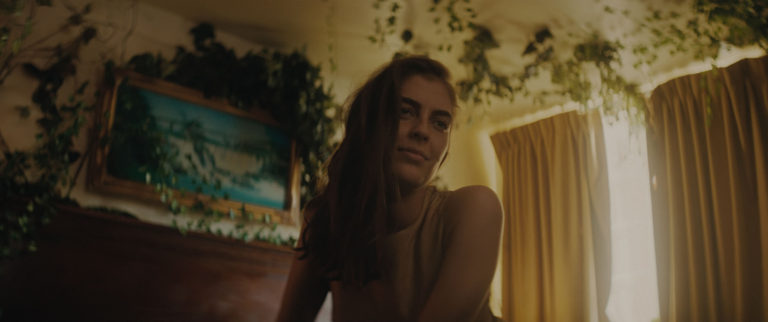Ayar (2020 | USA | 84 minutes | Floyd Russ)
Ayar (Ariana Ron Pedrique, also credited as a co-screenwriter) is an actress and singer originally from Latin America who’s been living and performing in Las Vegas, pursuing her dreams. When the pandemic hits and shuts everything down, she returns to Southern California to reconnect with her 5-year-old daughter Jasmine, whom she’d left in the care of her mother (Vilma Vega, the third credited screenwriter alongside director Floyd Russ) – only to discover she is no longer welcome in her old life. Adrift, she starts to spin out, considering drastic measures to get her daughter back while her personal and mental space is invaded by elements that may or may not be real.
And then things really start to come apart. To say any more would be to head into spoiler territory, but for a film that starts out with a very straightforward narrative, things end up in a very deconstructed place. On top of scenes like the one that plays out with the mechanics of a horror film, with Ayar creeping around her family’s home, we’re also treated to a thoughtful examination of the process of filmmaking and the backstories of the actors themselves. Backstory is in fact an essential element of this film: when new characters are introduced, a montage flashes by of photos from that person’s life from birth, through schooling and family, up to the present. Even those who only show up in one scene get this treatment – everyone here is a full person, part of a rich and wide tapestry.
The documentary/meta elements infringe on the narrative a little too suddenly for my taste – I think there’s a way they could have been woven into the fabric of the story a little more seamlessly – but even so it’s a fascinatingly raw portrait of filmmaking in the coronavirus era as well as of achieving one’s dreams via migration and determination. Festival programmer Hugues Barbier had a point when, in his introduction for the film’s in-person screening at the North Bend Theater, he noted that this film is likely to have a tough time finding distribution thanks to its unconventional and hard-to-classify blending of styles and genres, but whenever it’s possible to get eyes on it, it’s worth the effort.

The Witches of the Orient (2021 | France/Japan | 100 minutes | Julien Faraut)
I get the impression that the primary connection this documentary, a pretty straightforward history of the 1960s Japanese Olympic volleyball team, has to NBFF’s genre-focused programming is its title. The team, who won a record total of 258 victories (including in the 1964 Olympics) without defeat on the volleyball court, was so good it seemed supernatural, and thus earned the titular nickname. It’s just a joke about how good these ladies were at volleyball, though (with an outdated geographical term true to its time period): no actual sorcery here.
Of course, North Bend never claimed to exclusively be a horror film festival, and it’s certainly a fest that focuses heavily on the stories of people of marginalized populations with a strong feminist bent. That’s a box into which these women, who spent long days working in a factory in post-WWII-recovery-era Japan and then going through brutally intense training sessions that led to their epic victories, easily fit. Archival footage of the team’s training sessions and matches, as well as news reels mostly coming from director Julien Faraut’s native France and also Japanese cartoons inspired by their story, all interlace with present-day footage of the surviving members of the team, reuniting to reminisce about their glory days. To be fair, some dreamy sequences, with this archival footage set to blaring soundtrack music rather than foregrounding any original dialogue, do push this doc slightly into “experimental” territory, although these stylistic flourishes feel a bit out of place for the story the film is trying to tell – odd choices just for the sake of being odd.
Some of those clips – especially footage from two different major events in which the team went head-to-head with the USSR’s squad – run quite long; several hypnotic minutes of that white ball pinging back and forth could have been cut out and the narrative line of the film could have been stronger for it. Alternatively, the experimental touches could have been leaned into a little more heavily to produce a more cohesively dreamlike piece. There’s also a hint in the narrative toward the topic of possible abuse of these women by their extremely rigorous coach, but that’s barely brushed past in favor of focusing on the remarkable triumph these ladies achieved on the courts, which is all this doc really wants to talk about.
Images courtesy of NBFF.




